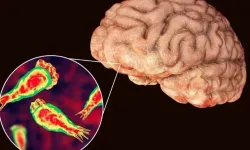Scientists have long admired oxytocin, the so-called "love hormone", for its role in strengthening emotional bonds and promoting psychological well-being.
Beyond its social functions, oxytocin is now also recognized for its important impact on cognitive processes such as learning and memory.
These findings suggest that oxytocin may help strengthen memory and play a potential role in the treatment of diseases associated with memory loss, such as Alzheimer's.
NEW INSIGHTS INTO HOW IT AFFECTS MEMORY
In a landmark study, researchers from Tokyo University of Science have revealed new insights into how oxytocin affects memory in animals.
This discovery could have profound implications for the treatment of human cognitive disorders such as dementia.
Scientists have begun to investigate the neural pathways and signaling mechanisms activated by oxytocin.
This research is leading to a better understanding of the hormone's effects on the brain and its healing potential.
Oxytocin, the "love hormone", could help develop new treatments for memory loss and other cognitive disorders.















